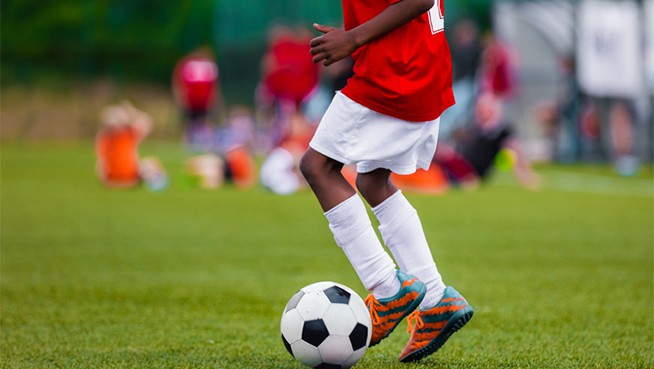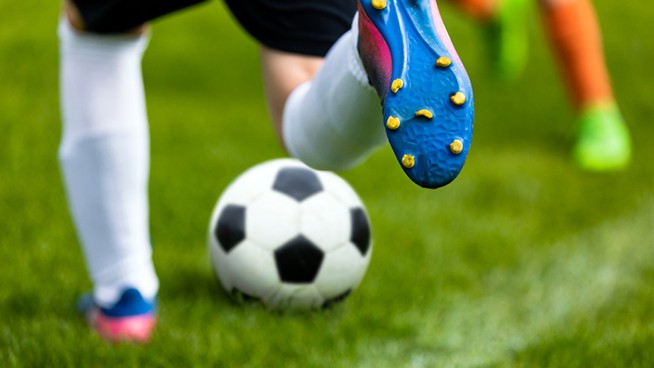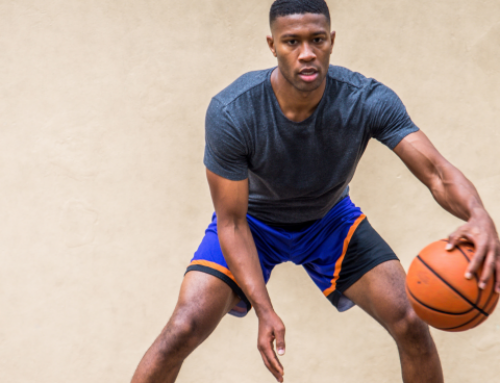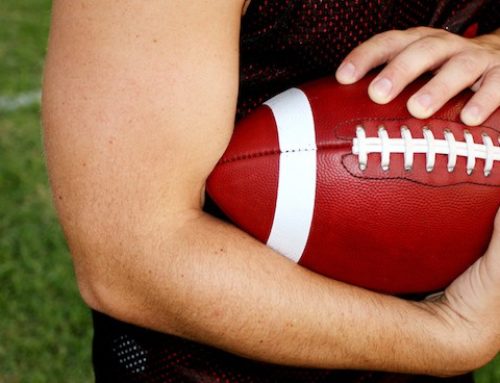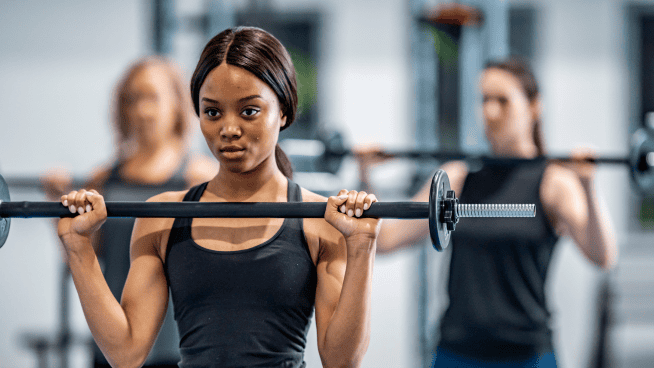10 Keys to Being a Great Basketball Defender
When it comes to hoop dreams, most are filled with high-flying dunks, game-winning buzzer beaters and ankle-breaking crossovers.
Very few young basketball players grow up with visions of wanting to be Ben Wallace, Dennis Rodman, Gary Payton, Tamika Catchings or Alana Beard—players known primarily for their defensive prowess.
It’s often said that defense wins championships, but being a great defender doesn’t get the same recognition from media or fans as being a top-tier scorer.
Admittedly, it is easier (and usually more fun) to go to the park or the gym and work on the offensive aspects of the game than it is to do defensive drills. But those willing to invest time and focus into their defense will be richly rewarded. Coaches love players they can count on to get stops, and great defense has been the beating heart of many a championship team.
Defense is about more than athleticism.
Larry Bird was never known as the most athletic player, but his basketball IQ more than made up for any lack of athletic ability. People tend to remember Bird for all offensive talents, but his mental understanding of the game and his opponents helped him earn three straight All-NBA defense second-team honors.
If you can play defense, a coach will find a way to use you. With that in mind, here are 10 keys to being a lockdown basketball defender.
1. Be Fearless
Constantly seeking out “easy” match-ups won’t do much to make you a better defender. Taking on the other team’s best player (or even your own team’s during practice) means swallowing your ego, as you could get lit up or be on the wrong end of a highlight film. But great defenders are not afraid of this challenge. Marcus Smart is often assigned to guard players much larger than himself, yet he never backs down. Becoming a top-notch defender starts with being fearless.
2. Be Physically Prepared
Based on original rules, basketball was not technically a “contact” sport.
However, we all know that contact is now part of the game, particularly on the defensive end. Fighting through bone-crunching screens, boxing out for rebounds and diving on the floor for loose balls will leave even the best defender bruised and battered by the end of the night. You must be physically prepared for these tasks.
Gain muscle if you need it. Eat right. Sleep well. Raise your endurance so that being “too tired” to get a stop is no longer an excuse.
The reason West Virginia’s press defense is often so suffocating is because the players are fit enough to run it, and getting that fit is hard work.
When you combine a physically prepared player with the right mentality, a great defender is born.
3. Do Your Homework
Pre-game preparation is one of the most important components of being a great defender.
Watch film. Immerse yourself in the game plan. Know what your own coach likes to run in certain situations, and what the opposing coach likes to call.
The better you know the plan of attack, the faster and more aggressively you can play.
4. Talk Constantly
The best defenders are often the players who constantly talk to the rest of their team, whether it is on the floor or from the bench.
At no time during a defensive series should you be silent as there is always someone to talk to and something that you should be talking about.
Basketball is a team game, and to be a great defensive unit, clear and consistent communication between teammates is essential. Simple short words or phrases from all five teammates help build energy and awareness. Calling out who is on “ball,” who is in “deny” position, who is “help side” or has the “hoop help”—these things help a defense keep their shape and stay true to their principles.
An opposing player setting a bone-crunching pick that leads to an easy bucket is one of the worst things that can happen to a defense, and such instances can often be avoided with simple communication.
5. Stay Locked in on the Bench
Whether you are a starter or on the second unit, there will be times during the game when you’re coming off the bench.
It’s easy to get distracted on the sidelines. Some players tend to get caught up watching the game as a fan instead of breaking it down as a player.
Are you paying attention to the player or players who you’ll most likely be guarding? What are their strengths and weaknesses? Do they have a preferred side of the floor? Are they a catch-and-shoot type player, or do they like to put the ball on the floor? What type of offense does the opposing team run? Can they shoot the three over top of a zone, or will they struggle if your team packs the paint?
While it’s great to focus on how you can play best when you get in (or back in) the game, you can also be an extra voice for your teammates. Are you able to help by calling screens or alerting when cutters are moving?
You can also check in with one of your coaches about things you may be able to do better.
Many have said that the game of basketball is 80% mental, 20% physical. You might not be able to swipe a steal or make a block from the bench, but you can work to help you and your team win the mental battle.
6. Be Willing to Sacrifice Your Body
Basketball is a contact sport, plain and simple.
And that contact doesn’t exist just between you and other players, but also you and the hardwood.
The best defenders in basketball know that at the end of the night, they will have bumps and bruises. They embrace this. They embrace taking charges. They embrace diving for loose balls. They embrace cutting off driving players and battling for rebounds.
Even something as relatively simple as making sure you’re always in a proper athletic position to react on help-side requires physical effort from the glute and leg muscles, which very well may be burning by the end of the game.
Long story short: great defenders are willing to endure physical pain to prevent the other team from scoring. In fact, they don’t even think twice about it.
7. Know the Officials
There are three teams on the court in a traditional basketball game: the two that are playing, and the one that’s officiating.
Officials are human, too. They’ll have good days and bad days, and two of them may see the same play completely differently.
Try to learn as quickly as possible what calls a given crew of officials will and will not make. And also do your best to avoid getting on their bad side.
If every offensive trip down the floor you’re barking at them and asking for calls, odds are you won’t be happy on the other end of the court. Plus if you’re spending time arguing and complaining about a lack of calls, you’re likely giving the other team a good shot at a fast break.
Learning how and when to talk to an official plays a big part in becoming an elite defender. Do you think that yelling and throwing your arms in the air will result in something positive or negative? Of course you are going to be frustrated with a debatable call, but if you speak politely with an official during a stoppage in play, maybe you will be able to hear their reasoning while also making them more likely to hear your point of view.
8. Think Bigger Than ‘Your Man’
A coach may occasionally tell you to stay stapled to the hip of a specific opponent, but such occasions are rare.
Great defenders aren’t just worried about their man scoring—they’re worried about anyone scoring.
While you might feel you’re the “Kobe Stopper” when you keep your man from stuffing the stat sheet, if your teammates are getting beat to the rim time after time, that’s not worth much.
At some point, an offensive player is going to get a step on a defender, and a good defensive teammate should be in help-side position to lend a hand. Being ready and willing to step away from your check and help out your teammates will ultimately lead to less points for your opponent. Deny position (1 pass away), weak side help (2 passes) and hoop help (3 passes) are common defensive rotations a great defender needs to know like the back of their hand.
9. Make Opponents Uncomfortable
There are many ways to make an offensive player uncomfortable.
If you do not allow a cutter to make a straight path to their intended destination, it can cause frustration. If, as a post defender, you are constantly moving and forcing the offensive big man off their preferred “spot,” you’re taking them out of their comfort zone.
Players like Patrick Beverley and Marcus Smart both play an important role for their respective teams, especially when it comes to the defensive end of the court. Never ones to back down, both have been known to make offensive players uncomfortable by forcing them to dribble more than they’re used to, or by engaging in strategic trash talk.
This frustration can occasionally turn an offense against each other as turnovers or bad shot selection take place and teammates start to get frustrated with lack of proper execution.
10. Study Other Great Defenders
Again, defense is less about athleticism and more about effort and basketball IQ.
Study great defenders like Beverley, Smart, Draymond Green, Paul George, Eric Bledsoe, Rudy Gobert, Kawhi Leonard, Klay Thompson and Jrue Holiday.
If you pay attention to some of the subtle nuances of great defenders, notice how they play angles, position themselves to cut off drives, use their body to their advantage, stay in stance through whole defensive possessions, etc. Steven Adams isn’t all that strong inside the weight room, but his footwork and body position make him a brick wall on the court.
Being a great defender takes extreme attention to detail, but unwavering effort is the glue that ties everything together.
Photo Credit: FatCamera/iStock
READ MORE:
RECOMMENDED FOR YOU
MOST POPULAR
10 Keys to Being a Great Basketball Defender
When it comes to hoop dreams, most are filled with high-flying dunks, game-winning buzzer beaters and ankle-breaking crossovers.
Very few young basketball players grow up with visions of wanting to be Ben Wallace, Dennis Rodman, Gary Payton, Tamika Catchings or Alana Beard—players known primarily for their defensive prowess.
It’s often said that defense wins championships, but being a great defender doesn’t get the same recognition from media or fans as being a top-tier scorer.
Admittedly, it is easier (and usually more fun) to go to the park or the gym and work on the offensive aspects of the game than it is to do defensive drills. But those willing to invest time and focus into their defense will be richly rewarded. Coaches love players they can count on to get stops, and great defense has been the beating heart of many a championship team.
Defense is about more than athleticism.
Larry Bird was never known as the most athletic player, but his basketball IQ more than made up for any lack of athletic ability. People tend to remember Bird for all offensive talents, but his mental understanding of the game and his opponents helped him earn three straight All-NBA defense second-team honors.
If you can play defense, a coach will find a way to use you. With that in mind, here are 10 keys to being a lockdown basketball defender.
1. Be Fearless
Constantly seeking out “easy” match-ups won’t do much to make you a better defender. Taking on the other team’s best player (or even your own team’s during practice) means swallowing your ego, as you could get lit up or be on the wrong end of a highlight film. But great defenders are not afraid of this challenge. Marcus Smart is often assigned to guard players much larger than himself, yet he never backs down. Becoming a top-notch defender starts with being fearless.
2. Be Physically Prepared
Based on original rules, basketball was not technically a “contact” sport.
However, we all know that contact is now part of the game, particularly on the defensive end. Fighting through bone-crunching screens, boxing out for rebounds and diving on the floor for loose balls will leave even the best defender bruised and battered by the end of the night. You must be physically prepared for these tasks.
Gain muscle if you need it. Eat right. Sleep well. Raise your endurance so that being “too tired” to get a stop is no longer an excuse.
The reason West Virginia’s press defense is often so suffocating is because the players are fit enough to run it, and getting that fit is hard work.
When you combine a physically prepared player with the right mentality, a great defender is born.
3. Do Your Homework
Pre-game preparation is one of the most important components of being a great defender.
Watch film. Immerse yourself in the game plan. Know what your own coach likes to run in certain situations, and what the opposing coach likes to call.
The better you know the plan of attack, the faster and more aggressively you can play.
4. Talk Constantly
The best defenders are often the players who constantly talk to the rest of their team, whether it is on the floor or from the bench.
At no time during a defensive series should you be silent as there is always someone to talk to and something that you should be talking about.
Basketball is a team game, and to be a great defensive unit, clear and consistent communication between teammates is essential. Simple short words or phrases from all five teammates help build energy and awareness. Calling out who is on “ball,” who is in “deny” position, who is “help side” or has the “hoop help”—these things help a defense keep their shape and stay true to their principles.
An opposing player setting a bone-crunching pick that leads to an easy bucket is one of the worst things that can happen to a defense, and such instances can often be avoided with simple communication.
5. Stay Locked in on the Bench
Whether you are a starter or on the second unit, there will be times during the game when you’re coming off the bench.
It’s easy to get distracted on the sidelines. Some players tend to get caught up watching the game as a fan instead of breaking it down as a player.
Are you paying attention to the player or players who you’ll most likely be guarding? What are their strengths and weaknesses? Do they have a preferred side of the floor? Are they a catch-and-shoot type player, or do they like to put the ball on the floor? What type of offense does the opposing team run? Can they shoot the three over top of a zone, or will they struggle if your team packs the paint?
While it’s great to focus on how you can play best when you get in (or back in) the game, you can also be an extra voice for your teammates. Are you able to help by calling screens or alerting when cutters are moving?
You can also check in with one of your coaches about things you may be able to do better.
Many have said that the game of basketball is 80% mental, 20% physical. You might not be able to swipe a steal or make a block from the bench, but you can work to help you and your team win the mental battle.
6. Be Willing to Sacrifice Your Body
Basketball is a contact sport, plain and simple.
And that contact doesn’t exist just between you and other players, but also you and the hardwood.
The best defenders in basketball know that at the end of the night, they will have bumps and bruises. They embrace this. They embrace taking charges. They embrace diving for loose balls. They embrace cutting off driving players and battling for rebounds.
Even something as relatively simple as making sure you’re always in a proper athletic position to react on help-side requires physical effort from the glute and leg muscles, which very well may be burning by the end of the game.
Long story short: great defenders are willing to endure physical pain to prevent the other team from scoring. In fact, they don’t even think twice about it.
7. Know the Officials
There are three teams on the court in a traditional basketball game: the two that are playing, and the one that’s officiating.
Officials are human, too. They’ll have good days and bad days, and two of them may see the same play completely differently.
Try to learn as quickly as possible what calls a given crew of officials will and will not make. And also do your best to avoid getting on their bad side.
If every offensive trip down the floor you’re barking at them and asking for calls, odds are you won’t be happy on the other end of the court. Plus if you’re spending time arguing and complaining about a lack of calls, you’re likely giving the other team a good shot at a fast break.
Learning how and when to talk to an official plays a big part in becoming an elite defender. Do you think that yelling and throwing your arms in the air will result in something positive or negative? Of course you are going to be frustrated with a debatable call, but if you speak politely with an official during a stoppage in play, maybe you will be able to hear their reasoning while also making them more likely to hear your point of view.
8. Think Bigger Than ‘Your Man’
A coach may occasionally tell you to stay stapled to the hip of a specific opponent, but such occasions are rare.
Great defenders aren’t just worried about their man scoring—they’re worried about anyone scoring.
While you might feel you’re the “Kobe Stopper” when you keep your man from stuffing the stat sheet, if your teammates are getting beat to the rim time after time, that’s not worth much.
At some point, an offensive player is going to get a step on a defender, and a good defensive teammate should be in help-side position to lend a hand. Being ready and willing to step away from your check and help out your teammates will ultimately lead to less points for your opponent. Deny position (1 pass away), weak side help (2 passes) and hoop help (3 passes) are common defensive rotations a great defender needs to know like the back of their hand.
9. Make Opponents Uncomfortable
There are many ways to make an offensive player uncomfortable.
If you do not allow a cutter to make a straight path to their intended destination, it can cause frustration. If, as a post defender, you are constantly moving and forcing the offensive big man off their preferred “spot,” you’re taking them out of their comfort zone.
Players like Patrick Beverley and Marcus Smart both play an important role for their respective teams, especially when it comes to the defensive end of the court. Never ones to back down, both have been known to make offensive players uncomfortable by forcing them to dribble more than they’re used to, or by engaging in strategic trash talk.
This frustration can occasionally turn an offense against each other as turnovers or bad shot selection take place and teammates start to get frustrated with lack of proper execution.
10. Study Other Great Defenders
Again, defense is less about athleticism and more about effort and basketball IQ.
Study great defenders like Beverley, Smart, Draymond Green, Paul George, Eric Bledsoe, Rudy Gobert, Kawhi Leonard, Klay Thompson and Jrue Holiday.
If you pay attention to some of the subtle nuances of great defenders, notice how they play angles, position themselves to cut off drives, use their body to their advantage, stay in stance through whole defensive possessions, etc. Steven Adams isn’t all that strong inside the weight room, but his footwork and body position make him a brick wall on the court.
Being a great defender takes extreme attention to detail, but unwavering effort is the glue that ties everything together.
Photo Credit: FatCamera/iStock
READ MORE:

